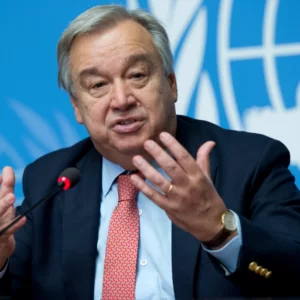Last Wednesday (22/11), the first thermoelectric plant to use natural gas extracted in the Pre-Salt came into operation, marking a significant milestone for the Brazilian energy industry. The Marlim Azul Thermoelectric Power Plant (UTE), located in the Macaé Logistics and Industrial Complex, in Rio de Janeiro, has a power of 565.5 MW, which enables it to supply electricity to more than 2 million homes.
The strategic location of the plant, close to the Port of Imbetiba, Macaé Airport and important highways, such as BR-101, RJ-168 and RJ-106, contributes to efficient logistics. Furthermore, the Cabiúnas Terminal, the destination point for natural gas from the Pre-Salt, is just 25 km away from the Marlim Azul TPP, facilitating the flow of production.
Currently, thermoelectric plants powered by natural gas represent 8.99% of Brazil's centralized energy matrix, totaling 17.6 GW in nominal value. Centralized renewable energy sources, including hydro, solar, wind and biomass, make up 83,84% of the matrix.
The minister of Mines and Energy, Alexandre Silveira, spoke about the importance of the inauguration of UTE Marlim Azul as a significant contribution to the Brazilian electricity sector. “Marlim Azul was a pioneer, being the first winning project in energy auctions related to pre-salt natural gas in Brazil, marking a historic moment in our industry.”
UTE Marlim Azul was contracted at the A-6 New Energy Auction in 2017, and its construction was financed by the National Bank for Economic and Social Development (BNDES), with a total investment of R$ 2 billion. It is estimated that the project will generate around 7,000 direct and indirect jobs.
The natural gas used at the plant is extracted from the Búzios fields, and supply is limited to the capacity of the gas pipeline, which has a capacity of 20 million cubic meters per day. Thermoelectric plant consumes, on average, 1.5 to 2 million cubic meters of gas every 24 hours.
In a broader context, the Ministry of Mines and Energy (MME) opened a public consultation at the beginning of the month to evaluate proposals that allow reducing the inflexibility of thermoelectric plants with Electricity Trading Contracts in the Regulated Environment (CCEARs). The objective is to reduce costs and increase operational flexibility in the National Interconnected System (SIN).
The Brazilian Government has demonstrated a continued commitment totransition to clean and renewable energy sources. “Without distancing ourselves from the necessary energy security, we will continue to invest more and more in clean and renewable energy. Our clear objective is for the country, with security, quality of supply and fair tariffs for the consumer, to maintain the capacity to integrate renewable sources”, declared the minister.
The proposal under discussion seeks to reconcile systemic interests and those of sectoral agents, preventing thermoelectric plants from presenting inflexible generation at times when the electrical system is sufficiently supplied by other, less costly sources. UTE Marlim Azul could be one of the beneficiaries if discussions progress, allowing the reduction of its inflexibility period. The Brazilian energy sector continues to evolve, incorporating advanced and sustainable technologies to meet the country's growing demands.













